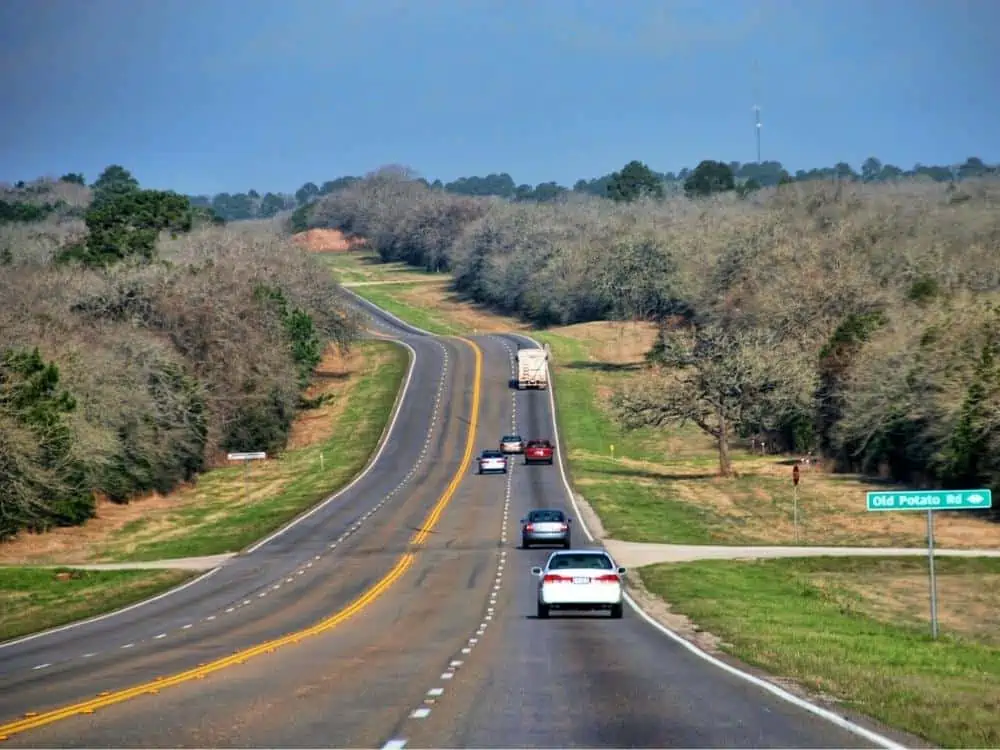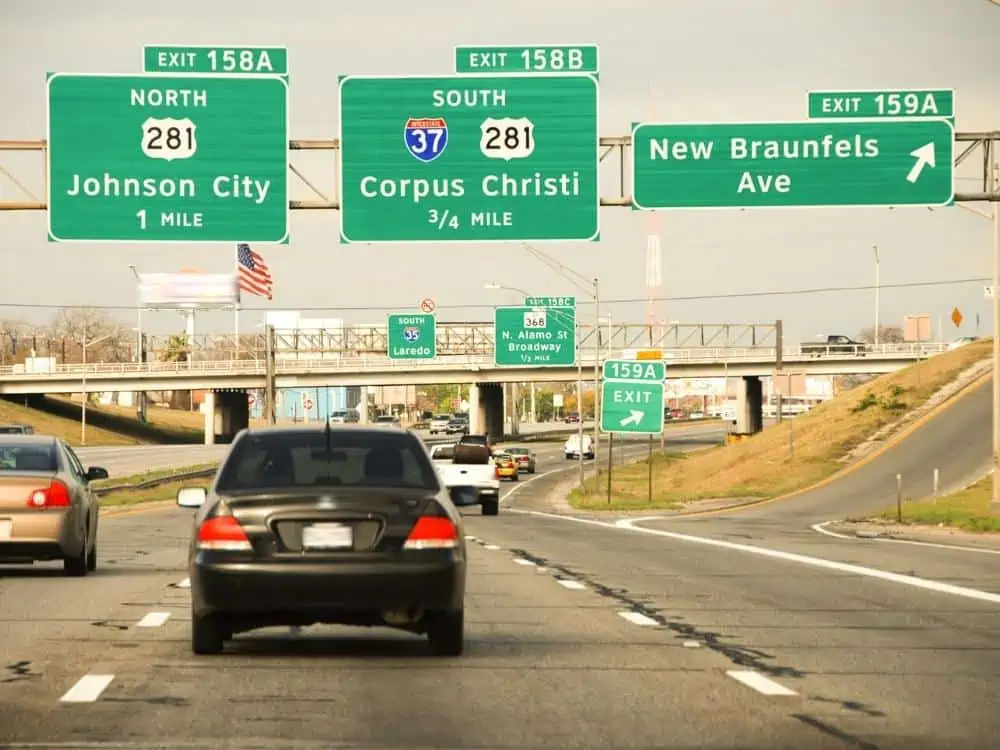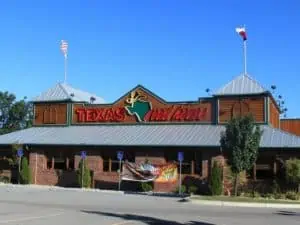Share the post "Between Policy and Potholes: Why Texas Roads Are Suffering"
Texas has more miles of highway than any other state, so it would stand to reason it also has some of the worst roads in the country. Texas ranks #17 in the nation for its poor road conditions. But why are Texas roads so bad and what is the solution?
With over 42,000 deaths in vehicle crashes in the U.S. in 2021, the number of road-related fatalities is on the rise. That is more than a 10% increase from the previous year and the highest increase ever recorded. Never has it been more important to understand why Texas roads are so bad and which measures to take to fix the problem.

So Why Are Texas Roads So Bad?
Several factors make the roads in Texas so bad. Not only can they cause unsafe driving conditions, but they can also damage your vehicle resulting in costly repair bills. Some of the most common road defects include:
- Cracks and potholes
- Uneven or worn road surfaces
- Poor drainage causes standing water
- Insufficient lighting
- Signage visibility and poor sightlines
- Poorly marked construction zones
All of these factors for poor road conditions can be reversed with proper maintenance and safety procedures. But with such a large network of roads in a state like Texas, it is difficult to stay ahead of the repairs necessary for safe infrastructure.
Road Conditions
Nothing is worse than not seeing a pothole until it is too late and you hear the thunk of the front end of your car slam into the pavement. In addition to the damage it can cause your vehicle, a pothole can also be a safety hazard.
Over-steering to avoid a pothole can cause your car to go off the road or collide with another vehicle. An uneven shoulder can also pull your car unexpectedly, causing the driver to lose control.
Inadequate Signage
Poor signage can cause collisions. Signs that are not well lit, faded, or missing altogether can lead a driver to make a poor decision resulting in a traffic accident.
Signage is important in construction zones. Without proper warning that a construction crew is working ahead, this poses a threat to both driver and worker alike.
What are the Worst Roads in Texas?
Texas has some of the worst roads in the country. But some are worse than others. High-level traffic and poor maintenance make these roadways the worst in the Lone Star State.
| Road | Area | Fatalities/avg per year |
| Interstate 45 | Harris County | 115 |
| Interstate 35 | Dallas-Austin | 58 |
| US Highway 83 | Rio Grande Valley | 27 |
| State Highway 130 | San Antonio- Austin | 14 |
I-45
One of the most dangerous roads in the entire country is the I-45, connecting Galveston to Houston to Dallas. With an average of 56.5 fatal accidents for every 100 miles, it is the most dangerous stretch of highway in the Lone Star State.
I-35
Road construction projects are a hindrance and can add to dangerous driving conditions. Like many roads in Texas, the I-35 has its fair share of construction. The interstate covers over 400 miles across the state, providing ample opportunity for distracted drivers to cause an accident.
Hwy 130
Not just poor conditions make a road bad in Texas. Speed is also a factor. State Highway 130 between Austin and San Antonio has a speed limit of 85 miles per hour. Excessive speed reduces reaction times and can increase the chance of a fatal accident, especially among novice drivers.

What Causes Road Damage in Texas?
It is one thing to state that roads in Texas are bad. But what causes road damage in the first place? Is it preventable? With such a vast network of roadways in Texas, it is nearly impossible to prevent road damage everywhere.
- Heavy truck loads
- Pavement Degradation
- Insufficient maintenance and neglect
- Sinkholes
- Severe weather conditions
Heavy Trucks
Pavement deterioration increases with the heavy volume of loaded trucks. The high number of oil and gas drilling rigs that use Texas roads is a primary factor as to why Texas roads are so bad.
Heavy truck traffic increases the cost of road maintenance, leaving state and local governments stuck with spending a good chunk of their budgets on infrastructure repair.
Off-System Roadways
The Texas Department of Transportation maintains approximately one-third of Texas roadways. With hundreds of thousands of miles of roadway throughout the state, local governments are responsible for maintaining many off-system roads with limited budgets.
Local governments have to prioritize budget spending across several infrastructural needs. As a result, rural highways are often the victim of neglect and create hazardous driving conditions for motorists.
Weather Conditions
When moisture gets into the soil beneath asphalt and freezes, it causes the pavement to contract and expand, which results in potholes, cracking, and in severe instances, sinkholes.
Excessive rain or flooding can also affect the soil under a roadway, weakening the asphalt and causing rapid deterioration. Poor road conditions, like worn or uneven surfaces, can create dangerous driving conditions.
Texas Roads FAQs
Are Texas Roads the Worst in the Country?
While Texas roads are not in great shape, they are not the worst in the country. The top five states with the worst roads are Rhode Island, Hawaii, Wisconsin, California, and Massachusetts.
Who is responsible for fixing Texas roads?
Ultimately it is the taxpayer’s money that funds the repair of our roads and highways. Major infrastructure like interstate highways is the responsibility of the Texas Department of Transportation (TxDOT) while smaller road networks fall to local governments.
How does Texas treat highways for ice?
Unlike some states, Texas does not use salt to treat all highways for ice due to its corrosiveness. Instead, Texas road crews use a brine solution in preparation for icy and freezing conditions. If the weather is severe, they may spray state highways with a magnesium chloride product to help melt the ice.
References:
- Texas Department of Transportation
- U.S. Department of Transportation
- Consumer Affairs
- Texas A&M Transportation Institute
- NHTSA
- IIHS
- KUT Public Media
Share the post "Between Policy and Potholes: Why Texas Roads Are Suffering"
Christian Linden is a seasoned writer and contributor at Texas View, specializing in topics that resonate with the Texan community. With over a decade of experience in journalism, Christian brings a wealth of knowledge in local politics, culture, and lifestyle. He holds a Bachelor's degree in Communications from the University of Texas. When he's not writing, Christian enjoys spending weekends traveling across Texas with his family, exploring everything from bustling cities to serene landscapes.











